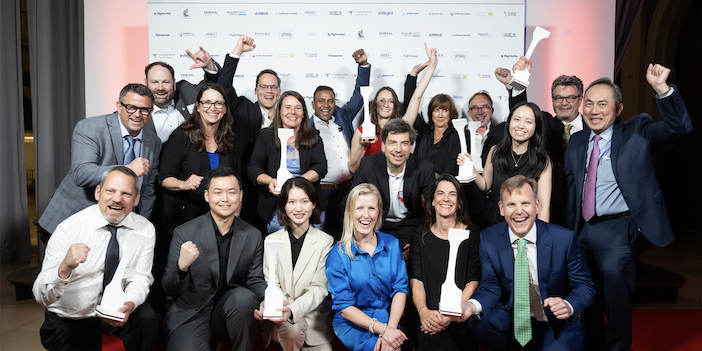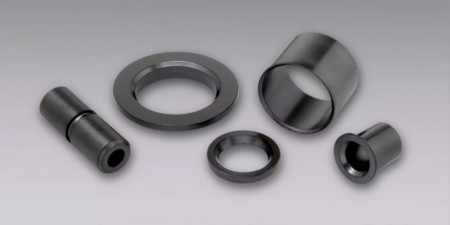The winners of the Crystal Cabin Awards – the most prestigious awards celebrating innovation in aircraft cabin technology and the passenger experience – have been revealed.
The Crystal Cabin Award is a fantastic opportunity for the wider world to see how aerospace companies, designers and engineering teams are innovating to revolutionise the flying experience. The annual Award sees a specialist judging panel of 28 industry experts consider the finest ideas that can enhance the inflight experience for both passengers and airlines, and give recognition where it is due.
So how were the winners selected? Following an initial vetting process, 72 entries made it through to the 2024 shortlist, split into eight categories: Cabin Concepts, Cabin Systems, Health & Safety, IFEC & Digital Services, Material & Components, Passenger Comfort, Sustainable Cabin, and University. A second discussion and voting process saw the list whittled down to 25 finalists.
At a special in-person judging event in Hamburg on Monday, the day prior to the opening of Aircraft Interiors Expo 2024, the judging panel met to assess the wide range of products entering the inflight experience before deciding which eight they considered to be the most innovative – and indeed award-worthy.
The winners are…
Category: Cabin Concepts
Each concept selected in this category represents excellence in aircraft cabin design.
Winner: BermudAir Aisle Class Suite
The BermudAir Aisle Class Suite, an innovation created by London-based studio, Factorydesign, for Bermuda-based airline, BermudAir, is an interesting approach to sustainable design. Pairs of existing economy-class seats in the airline’s Embraer 175s have been repurposed and remodelled to create luxurious business-class seats serving flights from the USA to Bermuda. This design approach is extremely cost-efficient and sustainable, as over 70% of the existing seats have been reused.

You can read the details in the March issue of Aircraft Interiors International.
Factorydesign also share design details in the Annual Showcase edition of Aircraft Interiors International.
Runners-up:
It should be noted that making it to the final round of the Crystal Cabin Awards is a big achievement. The runners up in each category deserve due recognition – and indeed each had their supporters within the judging panel. Congratulations also go to:
Japan Airlines (JAL) Airbus A350-1000 cabin interior – a beautiful design that blends tradition and modernity. The interior, created by the Tangerine studio, in collaboration with JAL, Safran Seats and Recaro Aircraft Seating, seamlessly weaves Japanese aesthetics with modern flight comfort to create a harmonious and tranquil space above the clouds.
Tangerine shared details of the design approach in the Annual Showcase edition of Aircraft Interiors International.
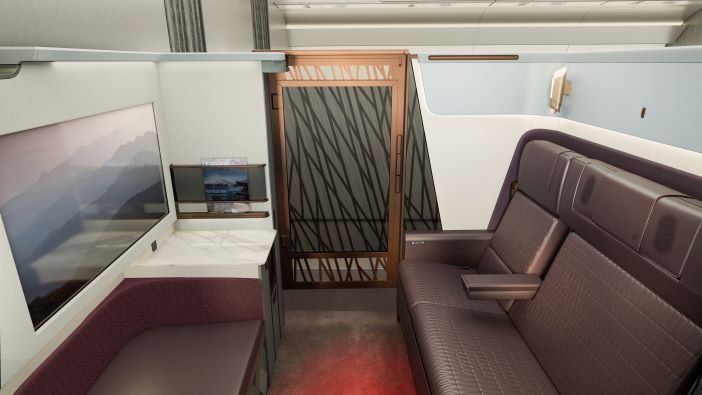
Airspace Cabin Vision 2035+ by Airbus Operations GmbH. The concept focuses on lightweight construction and the circular economy to reduce negative environmental impacts, with the goal of reducing cabin weight by up to 40%. The design also includes digitally supported, waste-reducing catering concepts. You can watch a video of the concept HERE.
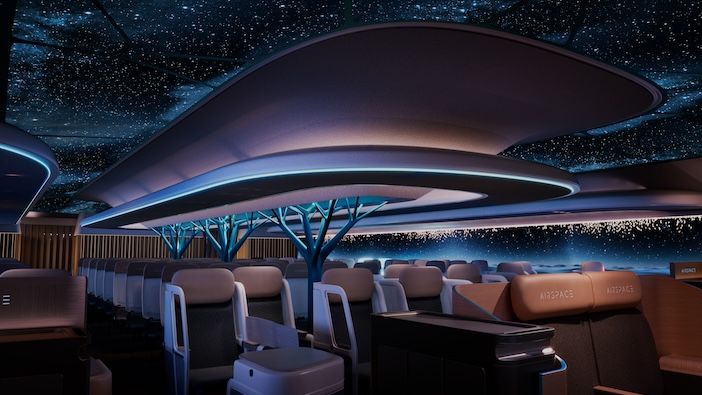
Cabin Systems
The Cabin Systems category recognises innovation in areas such as aircraft cabin energy efficiency and spatial flexibility.
Winner: theCUBE by Safran Cabin
theCUBE is a galley waste disposal unit that can be easily integrated into any unused space in the galley, with the contents automatically flushed by simply closing the door, making it easy for the cabin crew to operate. With a plug-and-play concept and utilising the standard ARINC rail, the unit is also easy to install and remove, simplifying maintenance and adding flexibility for the airline.
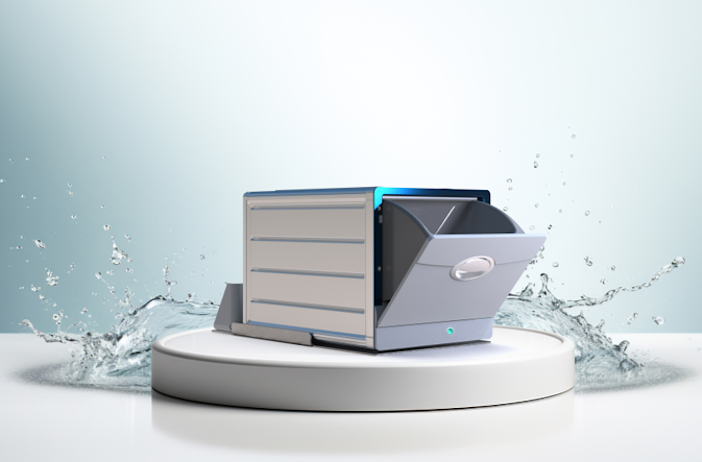
Safran Cabin says theCUBE uses 30% less water per flush than conventional disposal units and automatically activates UV light for odour control and bacteria prevention when closed. This ensures a lean, efficient and hygienic waste disposal system on board.
“We are honoured to receive a Crystal Cabin Award for the CUBE. This galley waste disposal innovation supports the hard-working cabin crew and contributes to a safer, cleaner flying experience for everyone”, said Nathan Kwok, EVP of sales and marketing at Safran Cabin,
Runners-up:
GeniusPOWER Core by KID-Systeme. This technology features intelligent charging options that enable passengers to charge their personal electronic devices such as smartphones and tablets during flight. Each compact power converter can efficiently power up to nine devices.
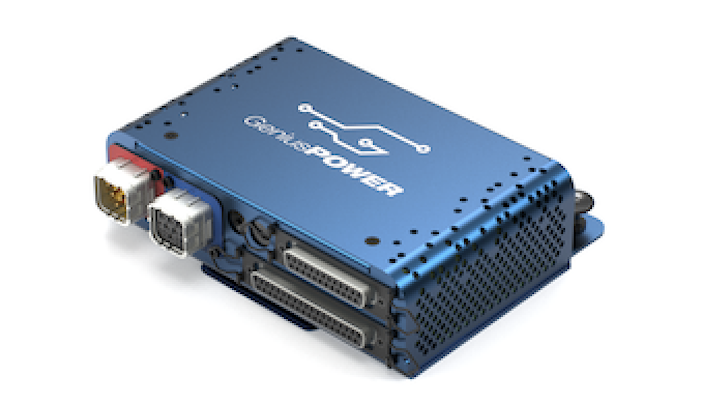
The RISE Power advanced in-seat power supply system by Burrana. Key features include a low weight of only 200 grams per seat, cost-effective installation without requiring re-certification of the seat, and fast charging of passengers’ personal devices.
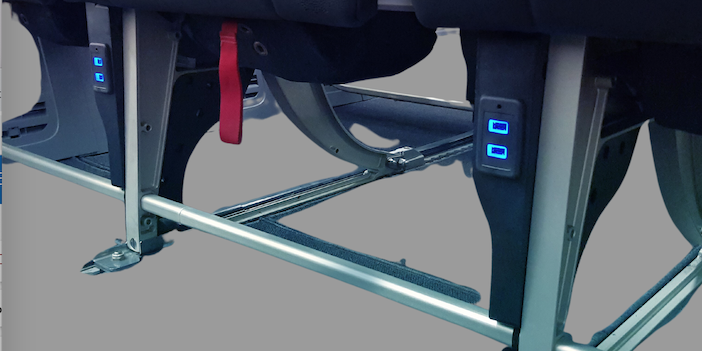
Health & Safety
The Health & Safety category recognises innovative products that enhance safety and accessibility in aviation.
Winner: Accenture PED safety bag
Lithium-Ion battery fires pose a potentially catastrophic risk to flight safety. The Accenture Personal Electronic Device (PED) safety bag is the first such device to meet the highest standard UL 5800 Performance Level 1, which ensures 100% containment of fire, smoke and toxic gases in the event of a lithium battery failure.
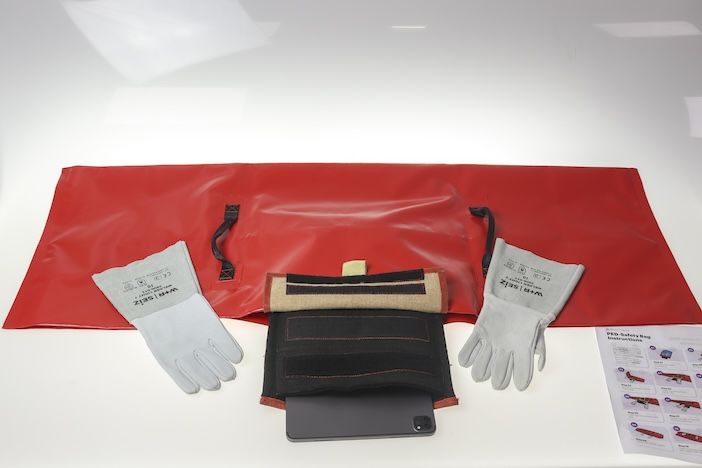
With increasing use of personal electronic devices and rising reports of lithium battery fires in aircraft, this bag offers double protection: the inner bag keeps out flames and heat, while the outer bag prevents smoke from entering the cabin. The intelligent insulation ensures that the outer temperature of the bag does not exceed 85°C. The jury was impressed by the fact that in the event of a burning PED, an aircraft can continue to fly safely for up to six hours before reaching an airport.
Runners-up:
Accessible IFE, an accessible in-flight entertainment (IFE) product designed by Safran Passenger Innovations (SPI) in collaboration with Air New Zealand and Virgin Atlantic. This technology enables passengers with auditory, visual, cognitive or motor impairments to be able to access and enjoy the onboard entertainment. Even better, SPI announced at this week’s Aircraft Interiors Expo that it will make the function open-source, available to other developers.

On the safety side, the AirPRO by Schroth Safety Products is a passenger lap-belt airbag, developed in cooperation with Teams Design Hamburg and the DesignBüro Stühmer | Scholz design studio in Hamburg. The belt combines an integrated airbag with crash sensor technology under the seat, which quickly activates the airbag in the event of an impact, and is designed for adaptability to different cabin designs.
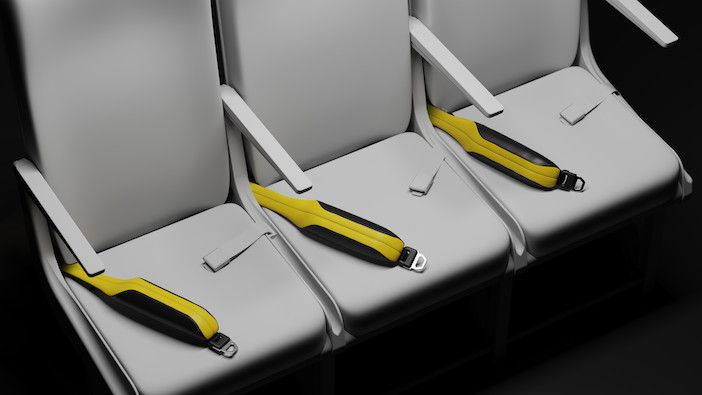
Passenger Comfort
The wellbeing and comfort of passengers on long and medium-haul flights can be improved by the finalists in the Passenger Comfort category of the Awards.
Winner: Qantas Airways Wellbeing Zone
With ‘Project Sunrise’, Qantas plans to redefine the historic Kangaroo route between London and Sydney by flying passengers non-stop in around 22 hours. These direct flights, which will also serve Sydney to New York routes, will set new standards for ultra-long flights, requiring particular emphasis on passenger comfort and health.
A key feature is the innovative Wellbeing Zone, which offers science-based wellness products, biorhythm-optimised lighting and real glass doors, created in collaboration with Diehl Aviation. This area, located between the economy and premium economy cabins, is accessible to all passengers, with space for physical activity and a self-service snack and drink station. The jury praised the Wellbeing Zone for its refreshing approach to ultra-long-haul comfort.
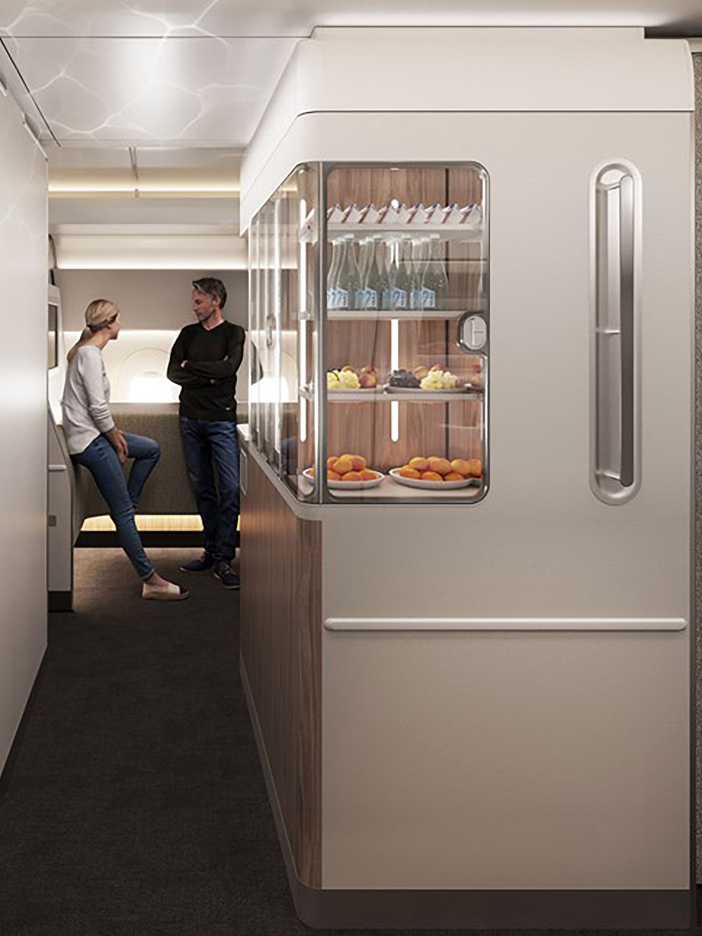
Runners-up:
The Signature seat by Safran Seats will also be welcomed by economy-class flyers. This design gives personal space to each passenger through a fixed pre-reclined backrest architecture that is adjustable for different body types. The seat is optimised for both long and medium-haul flights.
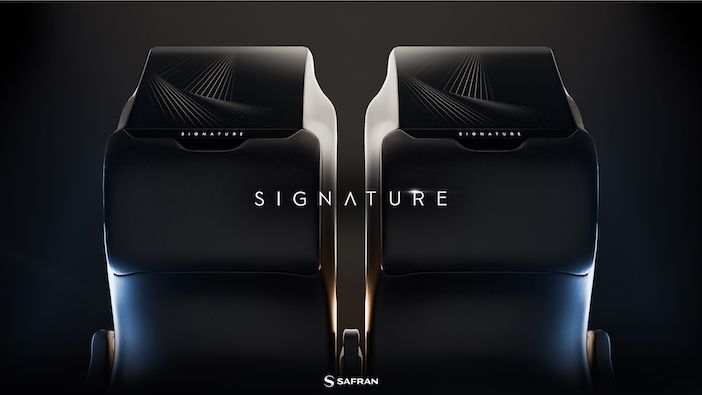
The Arise intelligent comfort system by Collins Aerospace is a smart seat comfort mechanism that uses sensor technology and advanced materials to reduce the main disturbances of sleep during flight – discomfort caused by body temperature, pressure distribution, and vibration. The system automatically adjusts seat position, cushion pressure and environmental conditions, based on real-time data analysis.

Arise is being demonstrated at this weeks’ Aircraft Interiors Expo as part of the MAYA concept.
IFEC & Digital Services
Advanced inflight entertainment and connectivity (IFEC) technologies revolutionise the way passengers interact with digital services onboard, and demand is high – from watching movies on the seatback display to accessing emails, sending text messages, surfing the internet, stream the latest TV content, or face-timing onboard. With the fast-paced world of electronics, the IFEC & Digital Services category is always highly competitive.
Winner: FlytEdge by Thales Avionics
FlytEdge is the first cloud-based and natively digital in-flight entertainment (IFE) solution, claimed by Thales to be the first IFE solution to feature edge caching. This platform enables the rapid integration of any web application, including streaming services, so passengers can instantly stream their favourite content, and offers fully remote operation, software and content updates anytime, anywhere.
FlytEdge offers full autonomy for airlines and continuous evolution, supported by innovative technologies such as the edge-caching feature and cross-content recommendations. This ground-breaking solution optimises airline operations while enhancing the passenger experience. The judging panel had details of the system ahead of its unveiling on the first day of Aircraft Interiors Expo in Hamburg, Germany.
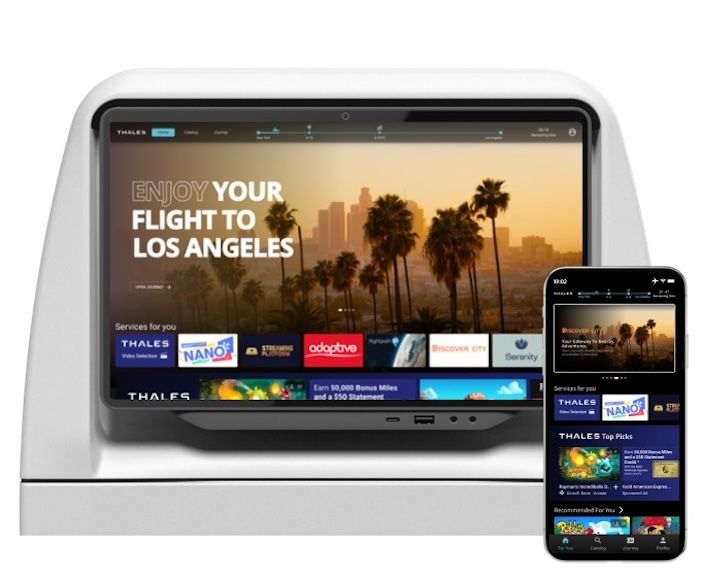
As a bit of Awards trivia, this is the third consecutive year that Thales has received prestigious Crystal Cabin award. Thales won an award for its Onboard Data Center (ODC) in 2023, and for its Pulse power management solution in 2022.
“We’re thrilled to win the 2024 Crystal Cabin Award in the IFEC & Digital Services category with FlytEDGE, the world’s first cloud-based inflight entertainment system. It’s a true IFE revolution,” said TK Kallenbach, CEO of Thales Inflyt Experience. “FlytEDGE’s groundbreaking features and intuitive design place it light-years ahead of the competition. This prestigious industry recognition for three straight years fills us with pride.”
Runners-up:
Intelsat impressed with Multi-Orbit Connectivity, which provides improved internet services onboard aircraft by combining geostationary (GEO) satellites and low-Earth orbit (LEO) satellites to enable faster speeds and lower latencies, to keep data-hungry passengers happy.

Collins Aerospace was also in this category, with the ADAPT system that allows passengers to control their seat, the in-flight entertainment system, and onboard service using their personal mobile devices, with individual settings automatically integrated. The platform supports advanced functions such as voice control, American Sign Language gesture recognition, and audio-visual feedback, enhancing accessibility for users. Arise is also being demonstrated as part of the MAYA concept.
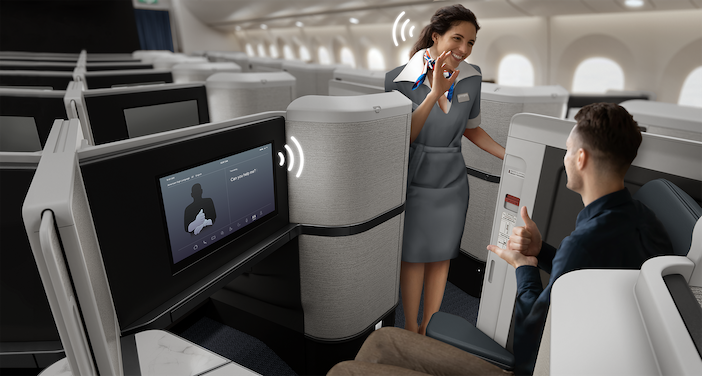
Materials & Components
Innovative solutions are central to the Materials & Components category, based on advanced manufacturing technologies, sustainable materials, and efficient designs that can reduce weight, increase efficiency, and minimise the environmental impact of flying.
Winner: STARLight by Collins Aerospace
STARLight is a structural technology that uses advanced composite designs, robotic manufacturing, and sustainable materials to reduce the weight of aircraft components while also lowering manufacturing costs. This technology enables airlines to efficiently design their cabin spaces without adding extra weight, and offers enhanced thermal and acoustic insulation properties. STARLight is also being demonstrated as part of the MAYA seat concept (it is worth seeing).
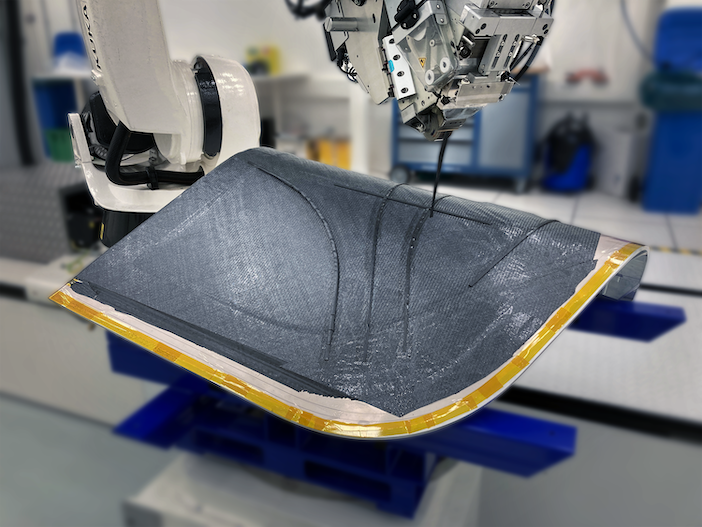
Runners-up:
Many passengers in business class enjoy the privacy provided by the doors on many modern suites. However, doors can add complexity and weight, and are sometimes challenging to certify. Inspired by the 1,000-year-old art of origami, Unum Aircraft Seating, in collaboration with MGR Foamtex, has developed ‘Door 2.0 – The Zen Privacy Door’, a foldable privacy door for business-class suites with a simplified, lightweight design that can be easier to certify – and cheaper to purchase. The simplicity of the deployment has to be seen to be believed.

The third finalist, the ECO Bracket, is an innovative bracket developed by Diehl Aviation and 9T Labs, made from recycled thermoplastic production waste and featuring an advanced manufacturing process that optimises load distribution and mechanical performance. Diehl Aviation says the product enables a reduction in weight, reduces production costs by 50%, supports the reduction of CO2 emissions, and promotes the reuse of resources at the end of the components’ lifecycle.

Sustainable Cabin
The submissions in the Sustainable Cabin category all aim to set new standards in terms of sustainability in aircraft cabins. The innovations use environmentally friendly materials and technologies to reduce the CO2 footprint, minimise waste, and improve resource efficiency, while also optimising the passenger experience.
Winner: ECO Sidewall by Diehl Aviation
With the ECO Sidewall, Diehl Aviation presents an innovative, eco-efficient sidewall concept that sets new standards in sustainable aviation. Through the use of lightweight materials and innovative design, Diehl claims the the weight of the sidewall has been reduced by 10%, which reduces the CO2 footprint in the production phase by 19%, and CO2 emissions during operation by 10%. Advanced technologies also reduce waste from prepreg blanks by more than a third.
The sidewall integrates environmentally friendly technologies that significantly reduce production waste and thus contribute to more sustainable cabin designs.
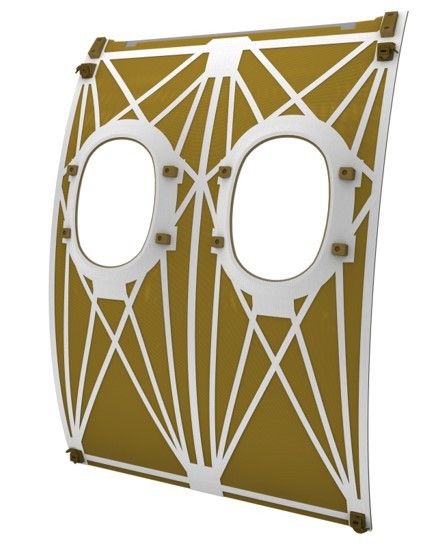
Runners-up:
The ‘R Sphere’ by Recaro Aircraft Seating is a seating concept that uses sustainable materials such as cork, wood, recycled fishing nets, and cactus. Recaro claims that substituting traditional economy-class seats with the R Sphere seat can reduce CO2 emissions by 63 tonnes per aircraft annually, with another benefit being that it is 100% recyclable at the end of its lifecycle.
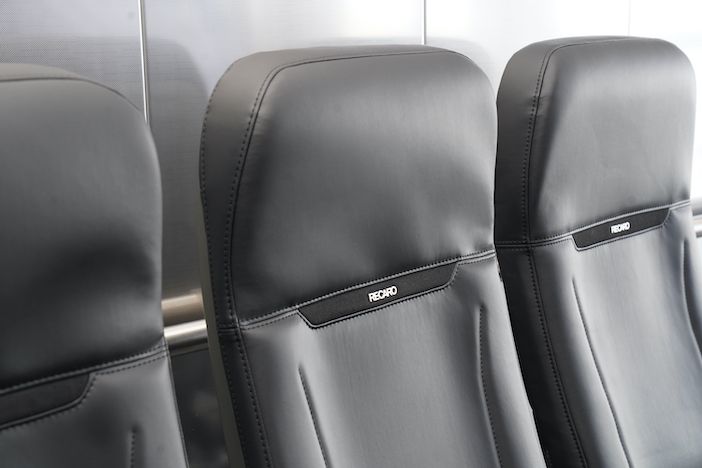
Meanwhile the Onboard Water Dispenser by Safran Cabin uses the existing water supply of the aircraft to enable passengers to fill their own bottles on board at stations installed near the toilets and galleys. UV filter technology is used to ensure the cleanliness of the drinking water. The solution reduces the need for passengers to purchase and dispose of water bottles, optimises stock management, and removes the need for cabin crew to distribute and dispose of plastic bottles and cups.
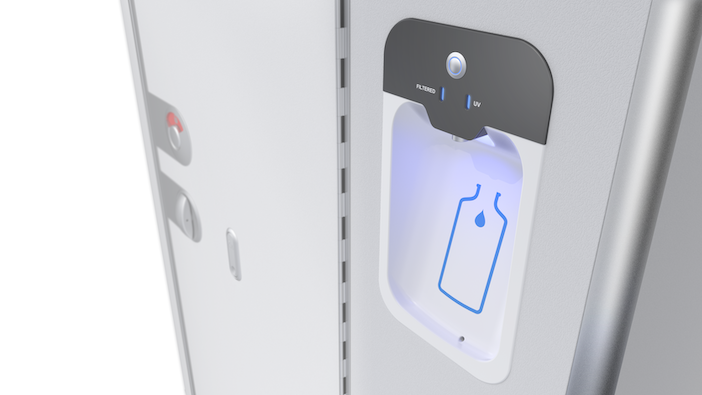
University
The University category is one of the most innovative areas of the Crystal Cabin Awards and is intended to provide a forum for freedom and creativity, slightly less bound by commercial and certification factors. There is a sense of real-world application though, through innovative collaborations between universities and industry partners that aim to address common problems in aircraft cabins.
Winner: Flexifold by Tongji University
This year the award goes to a team from Tongji University in Shanghai for the Flexifold concept, a concept created in collaboration with Dupont. This innovative economy seat fixture is made from lightweight and breathable materials in a sandwich structure, with a ‘fold-and-snap’ mechanism that provides efficient body support. The design combines light weight and comfort, with three cushions for customisable privacy, an adjustable recline angle, and a footrest that can be easily attached to existing seats.
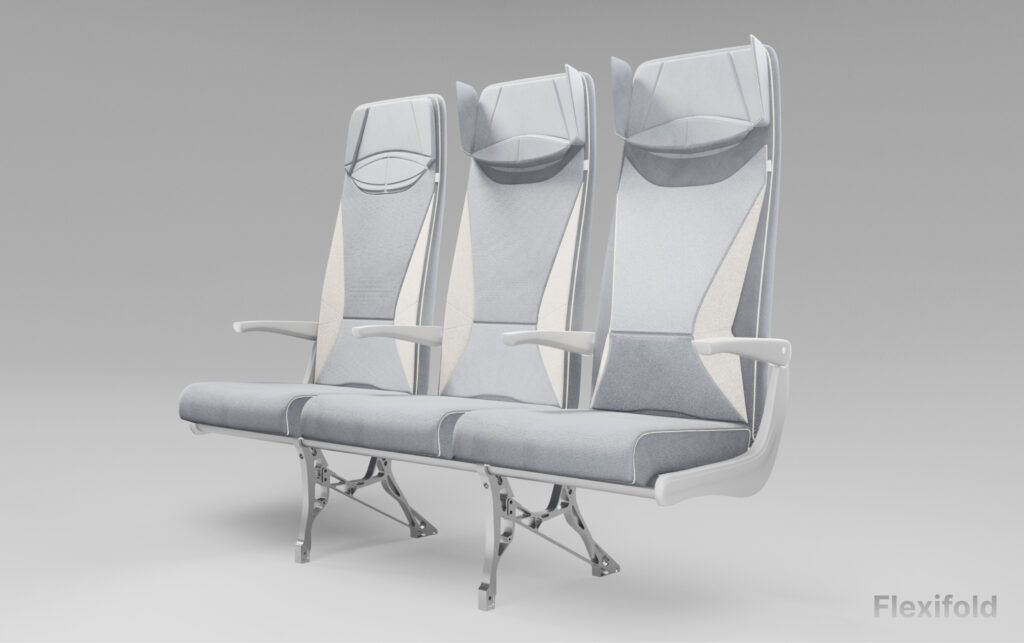
Runners-up:
The grandly named ‘Silentium in Excelsis’ concept from the University of São Paulo in cooperation with Embraer is an aircraft noise-cancelling device. It uses artificial intelligence and directs sound waves specifically at the passengers’ heads to reduce the white noise created by the aircraft engines, enabling users to work, sleep or converse without the use of headphones, by locally reducing noise disturbances.
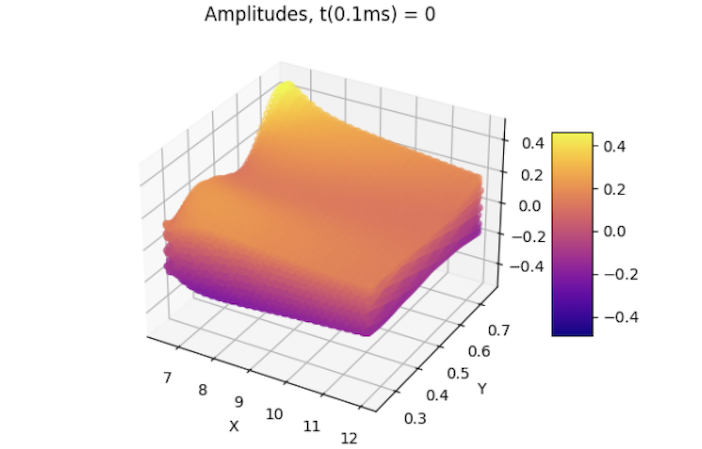
Silvacomfort – also an entry by the University of São Paulo in cooperation with Embraer – is a cabin system that uses sensor technology and artificial intelligence to individually adjust environmental conditions for each passenger, by modifying temperature, lighting and sound, based on the respective profile of the passenger. The system integrates discreet cameras, sound recording devices, and temperature sensors into the cabin architecture to anticipate passenger needs and adjust the settings of air conditioning, light, and background music accordingly, while data processing occurs centrally to protect privacy.
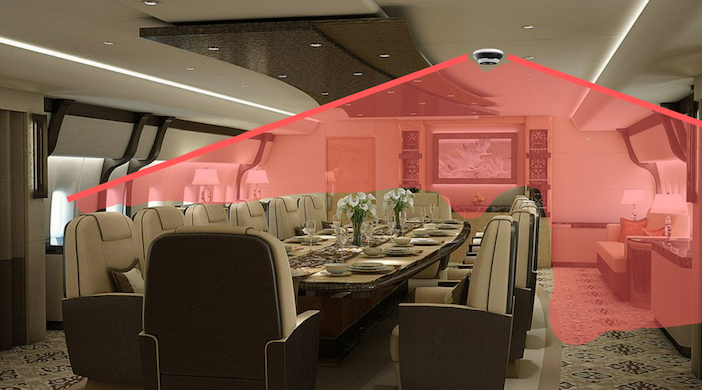
And finally the Wheelchair Space and Securement System (WSSS), developed by a student team from Virginia Tech in cooperation with Boeing, All Wheels Up, and Collins Aerospace, allows passengers with limited mobility to sit securely in their own wheelchairs during flight. The system is integrated into the seating configuration of an economy-class cabin and can be flexibly adapted when not in use, to minimise revenue losses for airlines.
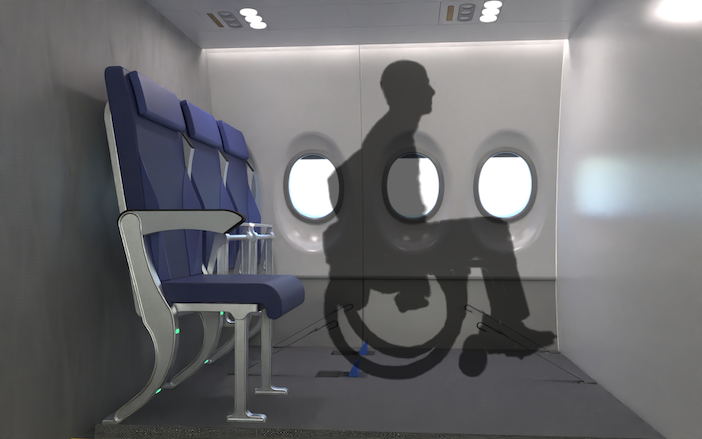
“This year’s submissions included many outstanding innovations that set new standards for the passenger experience by better recognising and responding to the individual needs of passengers – across all ticket classes,” commented Ralf Gust, president of the Crystal Cabin Awards Association. “The Crystal Cabin Awards 2024 have once again shown that innovation in the aviation industry continues unabated. It is impressive to see so many creative solutions developed to make travelling more comfortable, safer and more environmentally friendly. We are proud to recognise these ground-breaking developments and look forward to seeing the impact these innovations will have on the future of flying.”


